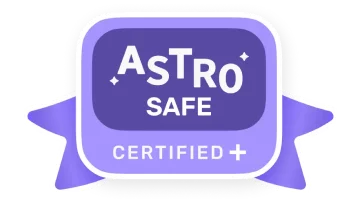Enga Facts for Kids
Enga is an indigenous language spoken in Papua New Guinea, notable for its unique linguistic features and a robust cultural tradition.
View Article For:

Related Articles
Introduction
️ It is the most widely spoken language in the country’s Enga Province, found in the highlands. The Enga people have unique traditions and customs. The language is part of the Trans-New Guinea language family, which means it's related to other languages in the region. Enga has many different dialects! 🗣
️ Learning Enga can help you understand the rich culture of the Enga people and their beautiful land.
History Of Enga
This language has been passed down through generations for thousands of years. The Enga Province became more known to outsiders in the 1930s, when explorers started arriving. The language has helped the Enga people keep their stories, traditions, and ways of life alive! Famous events like the annual Enga Cultural Show, held in the town of Wabag, celebrate this stunning history every August! 🎉
Art And Expression
The people express themselves through colorful art, intricate carvings, and traditional dances. 🎶
Masks and costumes created for cultural events represent different stories and spirits important in the Enga community. Children learn valuable skills from their elders and participate in artistic activities like weaving and painting. By practicing these arts, they keep their culture alive while having lots of fun! 🥳
This beautiful tradition bridges generations, allowing everyone to appreciate the great heritage of Enga.
Cultural Significance
It connects them to their ancestors and helps keep their stories and customs alive. Many songs and dances are performed in Enga, making special occasions even more joyful. 🌟
Through the language, children learn values and skills from their families, like farming and crafting. Enga is vital in passing down information about local plants, animals, and how to live harmoniously with nature! 🐦🌼
Economy And Livelihoods
The people grow various crops, including coffee, which is an important product for trading. Enga coffee is known for its rich flavor! ☕
Besides farming, some people also engage in small-scale businesses and crafts, selling handmade items like woven baskets and traditional clothing. The economy of Enga is closely tied to the land and nature, as the people depend on the environment to support their families and communities! 💪
Geography And Environment
️ The region experiences lots of rainfall, which creates stunning vegetation and unique wildlife. 🌳
You can find colorful birds like the Bird of Paradise and many different plants! The Enga people practice farming, growing crops like sweet potatoes and taro. With breathtaking scenery and diverse ecosystems, the environment plays a big role in the Enga language, influencing what words are used in daily life. 🌿
Language And Communication
It has several different dialects, making it a vibrant language to learn. The Enga people use Enga to talk to each other during everyday activities, celebrations, and storytelling. 📖
Enga relies on words that describe their surroundings and daily life, which can help children learn about their culture! Besides Enga, many people also speak Tok Pisin, another language of Papua New Guinea, making communication easier with newcomers. 🌏
Challenges And Opportunities
️ With modern influences like technology and media, kids are sometimes speaking less Enga and more English or Tok Pisin. However, there are opportunities to help keep Enga alive! Schools and community programs are working to teach the language to children. 📚
Engaging younger generations with fun activities, songs, and stories in Enga can help preserve this amazing language! The future of Enga can be bright if everyone works together! 💖
Traditional Practices And Beliefs
They participate in customs like the "sing-sing," a lively event featuring traditional music and dance! 🌺
Religion is important, and many people combine their traditional beliefs with Christianity. Ancestral spirits and nature play a big role in their beliefs. Understanding Enga allows children to discover and appreciate these amazing practices, essential in forming a strong cultural identity! 🌟
DIY is a humongous library of
activities and courses for kids.
Curious?
Gallery of
Did you know?
🗣️ Enga is one of the official languages of Papua New Guinea.
📍 It is primarily spoken in the Enga Province, which is located in the highlands.
📝 Enga has no official writing system, though efforts are being made to develop one.
🌍 Approximately 250,000 people speak Enga as their first language.
🎵 Enga is part of the Trans-New Guinea language family.
🔄 The language has numerous dialects, reflecting the diverse communities within Enga Province.
🎓 Enga speakers often use Tok Pisin or English for inter-ethnic communication.
👶 Enga has a rich tradition of oral literature, with stories passed down through generations.
🌱 The language is important for cultural identity among the Enga people.
🤝 Linguists consider Enga to be relatively under-researched compared to other Papua New Guinean languages.


